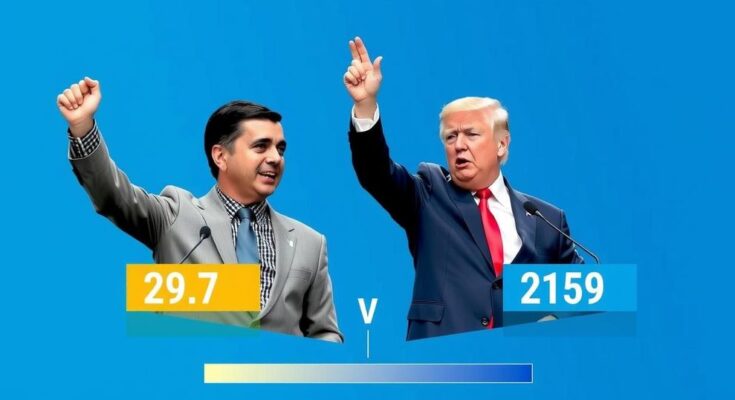Uruguay’s presidential runoff is set between Álvaro Delgado and Yamandú Orsi, following inconclusive first-round results. While Orsi leads with 44%, Delgado leverages support from conservative allies. Concerns over crime and economic stability shape their campaigns, with significant voter indecision remaining as the election nears.
Uruguay is preparing for a crucial second round of presidential elections, as citizens return to the polls to decide between Álvaro Delgado, the conservative incumbent’s candidate, and Yamandú Orsi of the leftist Broad Front coalition. The first round of voting, held on October 27, resulted in a split outcome: Orsi garnered 44% while Delgado received 27%. The remaining votes from conservative parties collectively granted Delgado a slight advantage in this runoff. Both candidates are addressing voter concerns regarding a rise in violent crime, a departure from the historically stable security Uruguay has enjoyed. Delgado’s campaign has emphasized continuity with the outgoing administration of Luis Lacalle Pou, highlighting economic growth and pro-business policies, while Orsi advocates for progressive reform that aims to modernize social policy while remaining in line with Uruguay’s commitment to fiscal responsibility. Voter indecision persists, with a significant portion of the electorate still undecided as the election approaches.
The upcoming presidential runoff in Uruguay arises after no candidate secured a majority in the first round of voting. This marks a significant political moment for a nation where elections have traditionally been less contentious. The political landscape reflects a shift from the leftist governance of the Broad Front, which held power for 15 years, to the current conservative administration. Issues central to campaign discussions include crime, economic policy, and social reform, illustrating the complex dynamics of contemporary Uruguayan politics.
As Uruguayans prepare to elect their next president, the outcome appears uncertain with both Delgado and Orsi presenting compelling arguments to their supporters. Key issues such as the economy and crime dominate the political discourse, with voter sentiment still fluctuating. This runoff heralds a critical decision point for the future governance of Uruguay, underscoring the vibrant democratic processes in place.
Original Source: abcnews.go.com




